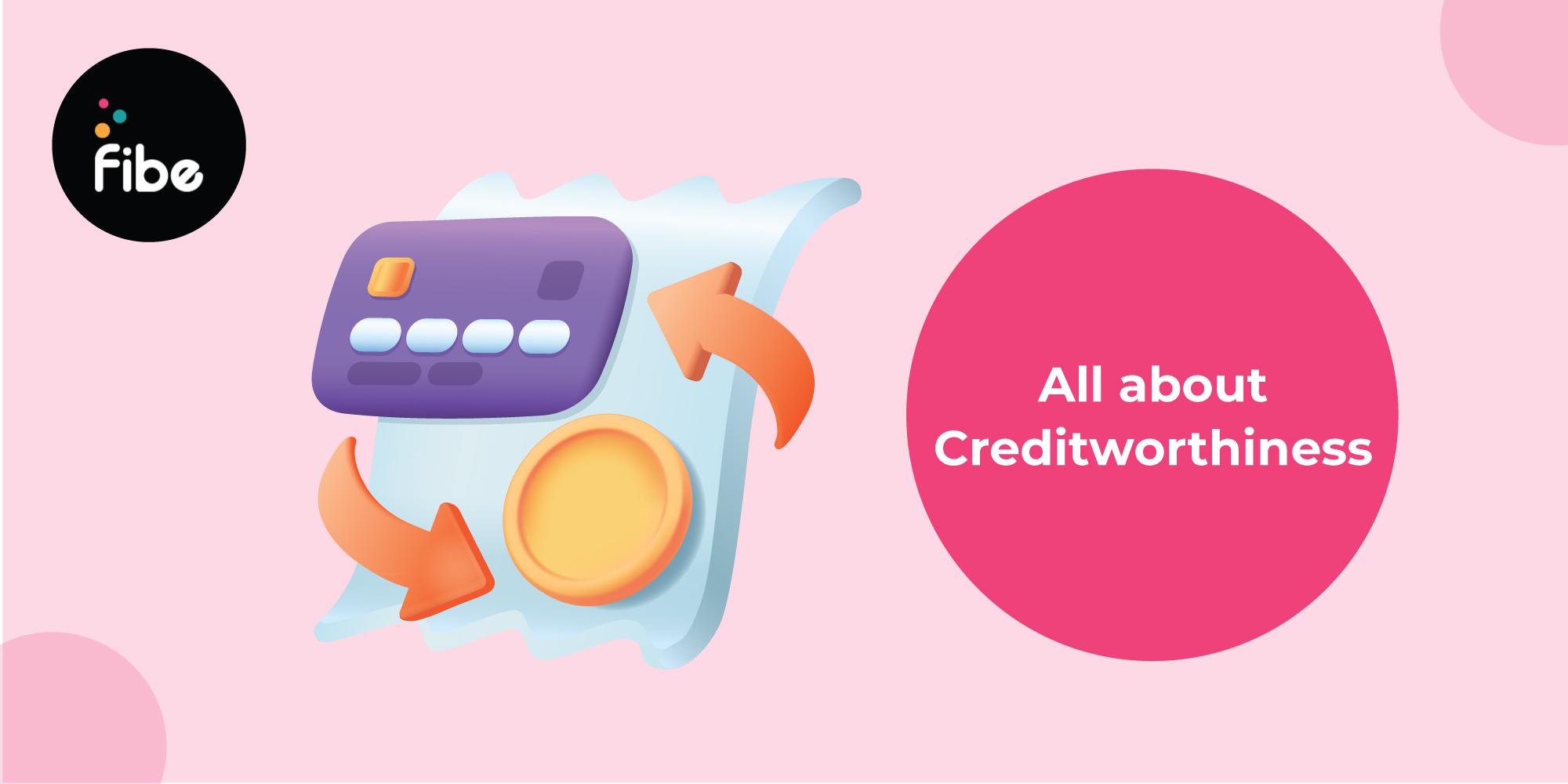- Home
- Blogs
- Credit Card
- How To Improve Creditworthiness
What is Creditworthiness: A Guide to Improve Credit Score
Reviewed by: Fibe Research Team
- Updated on: 5 Dec 2024
Reviewed by: Fibe Research Team

Do you know what creditworthiness means and why it is an essential part of your financial health? It simply enables you to get credit on time at lower interest rates. Financial companies check it based on a 3-digit score report generated by credit bureaus.
Evaluation of this score takes many factors into account. Learning about these factors can help you to improve your credit score and get easy access to credit cards and loans. Read on to know its meaning, how to check it and tips to improve your score.
This concept unites two words: credit, which refers to loans or credit cards and worthiness, which refers to suitability. Creditworthiness means how worthy you are to receive additional credits from lenders. So, how is it measured? Financial institutions check creditworthiness through your:
So, why do lenders care about how creditworthy you are? It is simple. Offering credit to a person who is financially unstable or reckless increases the possibility of irregular payments. Based on your creditworthiness, companies decide on the loan amount which you are likely to repay on time.
It is important for you to monitor your credit score and learn how your relationship with money impacts your score. You can check your score in 2 minutes on Fibe for free and get a detailed credit report, too!
Here are some practices that are good for your profile to build and maintain your creditworthiness:
The first step to improving your credit score begins with checking it often. You can find many websites to check your credit score.
You can follow these steps to check your credit score and improve it accordingly, if necessary.
Once you have checked your credit score and feel there’s room for improvement, you will have to work on a few aspects. This requires consistent effort, such as:
To better understand the meaning of creditworthiness and what influences it, remember these 4 Cs:
This factor assesses how trustworthy a borrower is. To determine it, lenders will check creditworthiness and your credit history. Paying your loan EMIs and credit card dues on time helps showcase your responsible behaviour and vice versa.
With this factor, lenders check your repayment ability, which is reflected by:
Another way lenders verify a lower risk of default is by evaluating your investments. For example, if a business has invested in assets or instruments, they are less likely to miss EMIs in future. Similarly, if a buyer has made a sizable down payment on the house, they may typically find it easy to afford EMIs.
With secured loans, lenders can auction the asset to recover the loan. So, the value of the collateral you offer has a significant impact on your credit profile. A high-value asset will help you secure high-value funding and vice versa.
The last factor that determines your creditworthiness is the external condition, which includes:
Here’s what you can do to boost your credit profile:
Armed with this knowledge, you can gradually improve your credit score. This will help you get a loan or credit card at more affordable interest rates in the future. However, improving your score takes time.
To build your credit history while also getting quick access to funds, you can rely on the Fibe Instant Personal Loan Online. Get up to ₹5 lakhs at competitive interest rates with nominal paperwork. This is a 100% digital application and has easy-to-meet eligibility criteria and swift disbursal.
Fibe’s alternate credit scoring models help you access funds with ease and repay flexibly in up to 36 months. With it, you can not only improve your creditworthiness but also use it without any restrictions. Download our Personal Loan App or apply on our website.
You can check it by getting a credit report from any one of the four credit bureaus in India, which are:
On Fibe, you can check your score online in just 2 minutes for free.
Here are the factors that affect your credit profile:
To boost your credit profile, inculcate some good financial habits, which include:
Credit cards and loans are important financial tools that will help you in need or in any sort of emergency. This is why your creditworthiness is important, as it will help you to get: